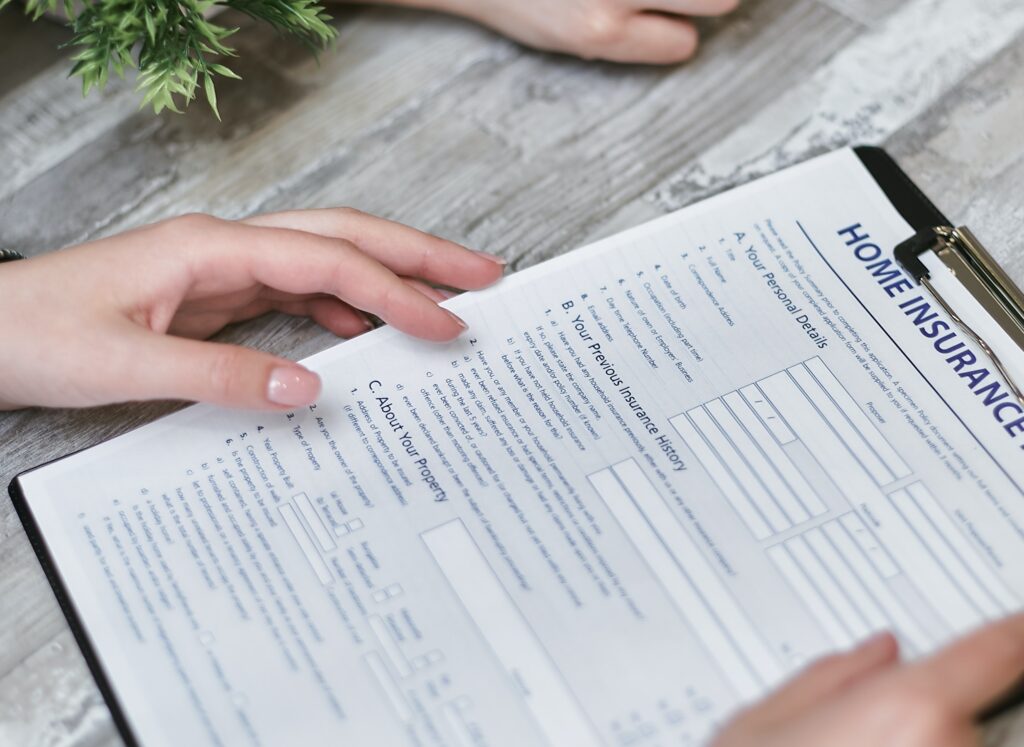Want to keep your property safe and secure without breaking the bank? Look no further! In this article, you will discover effective ways to insure your property for less. From finding the best insurance deals to implementing smart home security systems, we’ve got you covered. By following our tips and tricks, you can gain peace of mind and protect your valuable assets without draining your wallet. So, let’s dive right in and learn how to safeguard your property while saving money!
Understanding Property Insurance
What is property insurance?
Property insurance is a type of insurance that provides financial protection for your property in case of damage or loss due to unforeseen events such as fire, theft, or natural disasters. It typically covers your home, its contents, and other structures on your property. With property insurance, you can have peace of mind knowing that you are financially protected in case of unexpected events that may result in property damage.
Why is property insurance important?
Property insurance is important because it helps you protect your investment in your home and belongings. Your home is likely one of the biggest investments you will make in your lifetime, and it is important to have insurance coverage to safeguard it. Without property insurance, you would have to bear the financial burden of repairing or replacing your property out of pocket, which can be overwhelming and costly. Property insurance provides you with the financial protection and peace of mind you need to protect yourself and your property.
Types of property insurance
There are different types of property insurance policies available to suit different needs. The most common types include:
- Homeowners insurance: This type of insurance covers your home and its contents against various perils such as fire, theft, vandalism, and natural disasters. It also provides liability coverage in case someone is injured on your property.
- Renters insurance: If you are renting a property, you can opt for renters insurance to protect your personal belongings in case of theft, fire, or other covered events. It also provides liability coverage.
- Condo insurance: Condo insurance is specifically designed for condo owners and covers the interior of your unit and your personal belongings. It also includes liability coverage.
- Landlord insurance: If you own a rental property, landlord insurance can provide coverage for the building itself as well as any personal property you own on the property. It also offers liability coverage in case of injuries to tenants or property damage caused by tenants.
- Mobile home insurance: Mobile home insurance provides coverage for mobile or manufactured homes against specific risks such as fire, theft, and vandalism.
- Flood insurance: Standard property insurance policies usually do not cover flood damage. If you live in a flood-prone area, it is important to consider purchasing a separate flood insurance policy to protect your property.
These are just a few examples of the different types of property insurance available. It is important to assess your specific needs and consult with an insurance professional to determine the best type of coverage for you.
Factors that affect property insurance premiums
When it comes to determining your property insurance premiums, several factors come into play. Insurance companies use these factors to assess the risk associated with insuring your property and calculate the appropriate premium. Some of the key factors that can affect your property insurance premiums include:
- Location: The location of your property plays a significant role in determining your premiums. If you live in an area prone to natural disasters such as hurricanes or wildfires, your premiums may be higher due to the increased risk.
- Property value and construction: The value and construction of your property are important factors in determining your premiums. A higher-value property may have higher premiums since it would cost more to repair or rebuild in case of damage. Similarly, certain construction materials or features may impact the cost of insurance.
- Claim history: Your past claims history can affect your premiums. If you have a history of making frequent claims or significant losses, insurance companies may view you as a higher-risk customer and charge higher premiums.
- Deductible amount: The deductible is the amount you agree to pay out of pocket before your insurance coverage kicks in. A higher deductible can lead to lower premiums since you are assuming more of the financial risk.
- Type of coverage: The type and amount of coverage you choose can impact your premiums. Adding optional coverages or higher liability limits can result in higher premiums.
These are just a few examples of the factors that can affect your property insurance premiums. It is important to discuss these factors with your insurance provider to understand how they may impact your premiums.
Tips for Reducing Property Insurance Costs
Shop around for quotes
One of the best ways to reduce your property insurance costs is by shopping around for quotes from different insurance providers. Rates can vary significantly from one insurance company to another, so it’s important to compare quotes to ensure you are getting the best value for your money. Take the time to research and obtain quotes from multiple insurers to find the most competitive rates.
Increase your deductible
Another effective way to lower your property insurance premiums is by increasing your deductible. The deductible is the amount you agree to pay out of pocket before your insurance coverage kicks in. By opting for a higher deductible, you are assuming more of the financial risk, which can lead to lower premiums. Consider your financial situation and choose a deductible that you can comfortably afford in case of a claim.
Bundle your insurance policies
Many insurance companies offer discounts if you bundle multiple insurance policies with them. Consider combining your property insurance with other policies such as auto insurance or umbrella insurance to take advantage of these multi-policy discounts. Bundling your insurance policies can not only save you money but also make managing your policies more convenient.
Install security measures
Installing security measures in your home can help reduce the risk of theft or damage, which may lead to lower insurance premiums. Consider installing a security system, smoke detectors, burglar alarms, and deadbolt locks. These security measures not only provide you with peace of mind but may also qualify you for discounts on your property insurance.
Maintain a good credit score
Your credit score can also have an impact on your property insurance premiums. Insurance companies often use credit-based insurance scores to assess the risk associated with insuring you. Maintaining a good credit score can help you qualify for lower premiums. Pay your bills on time, keep your credit utilization low, and regularly review your credit report to ensure accuracy.
Make necessary property improvements
Improving the safety and structural integrity of your property can also help reduce your insurance costs. For example, reinforcing your roof, upgrading your electrical system, or replacing old plumbing may make you eligible for discounts. Consult with your insurance provider to determine which property improvements can lead to premium reductions.
Review your coverage regularly
It’s important to review your property insurance coverage regularly and make adjustments as needed. As your property value changes or you acquire new belongings, you may need to update your coverage to ensure adequate protection. Regularly review your policy with your insurance provider to make sure it reflects your current needs and to identify any potential savings opportunities.

Choosing the Right Insurance Provider
Research and compare insurance companies
When choosing an insurance provider, it is important to do your research and compare different companies. Look for insurance providers with a good reputation and a track record of providing quality service. Consider factors such as financial stability, customer satisfaction ratings, and the company’s history of handling claims. Reading online reviews and seeking recommendations from friends or family can also help you make an informed decision.
Check the financial stability and customer satisfaction ratings
Financial stability is crucial when selecting an insurance provider. You want to ensure that the company you choose has the financial strength to pay out claims in case of an event that results in property damage. Checking the financial stability ratings provided by independent rating agencies such as A.M. Best or Standard & Poor’s can give you a good indication of an insurer’s financial health. Customer satisfaction ratings, available through resources like J.D. Power’s annual surveys, can also provide insights into the level of service and customer care you can expect from a particular insurance provider.
Evaluate the coverage options
Different insurance providers offer different coverage options, so it’s important to evaluate the available options to find the best fit for your needs. Consider the coverage limits, deductibles, and optional coverages offered by each insurance provider. Assess your specific needs and determine which provider offers the coverage options that align with your requirements.
Consider customer reviews and recommendations
Reading customer reviews and seeking recommendations from others can provide valuable insights into an insurance provider’s reputation and customer service. Look for reviews or testimonials from policyholders who have experienced filing claims. Their experiences can give you a glimpse into how your insurance provider might handle a claim should the need arise.
Choosing the right insurance provider is a critical decision that will impact your property insurance experience. Take the time to weigh your options, compare coverage and rates, and research each insurance provider before making a final decision.
Maximizing Discounts and Savings
Take advantage of multi-policy discounts
Many insurance providers offer multi-policy discounts if you have multiple insurance policies with them. By consolidating your insurance policies with a single provider, you can often save money on your premiums. Consider bundling your property insurance with other policies such as auto insurance, life insurance, or umbrella insurance to maximize your discounts.
Seek out loyalty discounts
Insurance providers often offer loyalty discounts to reward long-term customers. If you have been with the same insurance company for several years, inquire about loyalty discounts that may be available to you. Loyalty discounts can help lower your premiums and save you money in the long run.
Maintain a claims-free history
Maintaining a claims-free history can also help you qualify for discounts and savings on your property insurance. Insurance companies may offer lower premiums or claim-free discounts to customers who have not filed any claims within a certain period. By taking steps to prevent losses and mitigate risks, you can keep your claims history clean and qualify for potential savings.
Ask about group or association discounts
Some insurance providers offer group or association discounts. If you belong to a professional organization, alumni association, or other affiliated groups, inquire about any potential discounts that may be available to members. Being a part of a group or association can sometimes help you secure exclusive discounts on your property insurance.
Look for discounts for security features
Installing security features in your home not only helps protect your property but can also lead to discounts on your insurance premiums. Insurance companies often offer discounts for security measures such as smoke detectors, burglar alarms, deadbolt locks, and security systems. Consult your insurance provider to find out which security features qualify for discounts and take advantage of these savings opportunities.
Maximizing discounts and savings can help reduce your property insurance costs significantly. By taking advantage of available discounts and implementing risk-mitigation measures, you can save money while still maintaining adequate coverage.

Understanding Coverage Options
Dwelling coverage
Dwelling coverage is a fundamental part of property insurance and provides protection for the structure of your home. It covers the cost of repairing or rebuilding your home in case of damage from covered perils such as fire, windstorm, or hail. Dwelling coverage typically includes the main dwelling, as well as attached structures such as garages or decks.
When choosing dwelling coverage, it is important to ensure that you have adequate coverage to rebuild your home in today’s construction costs. Consider factors such as the size of your home, its construction materials, and any unique features that may impact the cost of rebuilding. Review your policy with your insurance provider regularly to make adjustments as needed.
Personal property coverage
Personal property coverage protects your belongings inside your home, including furniture, electronics, appliances, clothing, and other personal items. If your personal belongings are damaged or destroyed due to covered perils such as fire, theft, or vandalism, personal property coverage can help reimburse you for the cost of replacing them.
It is important to assess the value of your personal belongings and ensure that you have adequate coverage. Take inventory of your belongings, including serial numbers, receipts, and photographs, to make the claims process easier in case of a loss. Consider adding endorsements or riders to your policy for higher-value items such as jewelry, artwork, or collectibles that may require additional coverage.
Liability coverage
Liability coverage is an essential component of property insurance as it helps protect you financially in case someone is injured on your property and you are legally responsible. Liability coverage can help cover medical expenses, legal fees, and damages if you are sued for bodily injury or property damage caused to others.
When choosing liability coverage, it is important to consider the risks associated with your property. Factors such as having a swimming pool, a dog, or hosting gatherings can increase your liability exposure. Discuss the appropriate liability coverage limits with your insurance provider to ensure you are adequately protected.
Additional living expenses coverage
Additional living expenses (ALE) coverage, also known as loss of use coverage, provides coverage for expenses you may incur if your home becomes uninhabitable due to a covered loss. If you are temporarily displaced from your home and need to live elsewhere, ALE coverage can help pay for additional living expenses such as temporary accommodation, meals, and transportation.
When selecting ALE coverage, consider factors such as the cost of temporary accommodation in your area and the duration it may take to repair or rebuild your home. Review your policy to understand the limits and coverage period provided by your insurance provider.
Scheduled personal property coverage
Scheduled personal property coverage is an optional coverage that allows you to protect high-value items such as jewelry, artwork, or antiques that may have limited coverage under your standard personal property coverage. By scheduling specific items on your policy, you can ensure that they are fully protected in case of loss or damage.
To determine if you need scheduled personal property coverage, assess the value of your high-value items and review your policy’s limits. Consult your insurance provider to understand the coverage options available and any additional premiums associated with scheduling specific items.
Understanding the coverage options available in property insurance is essential for ensuring that you have adequate protection for your home and belongings. Take the time to assess your specific needs, review your policy, and consult with your insurance provider to tailor your coverage to your requirements.
Factors that Affect Property Insurance Premiums
Location and local risks
The location of your property plays a significant role in determining your property insurance premiums. Insurance providers assess the risk associated with insuring properties in a particular area. If you live in an area prone to natural disasters such as hurricanes, earthquakes, or wildfires, your premiums may be higher due to the increased risk of property damage.
Additionally, the proximity of your property to local fire departments, coastal areas, or high-crime neighborhoods may also impact your premiums. Generally, properties located in areas with higher crime rates or farther away from emergency services may result in higher insurance costs.
Property value and construction
The value of your property and its construction materials can affect your property insurance premiums. Insurance companies consider the cost to rebuild or repair your home in case of damage when determining your premiums. A higher-value property may require higher premiums since it would cost more to restore or reconstruct.
Similarly, certain construction materials or features may impact the cost of insurance. Properties built with fire-resistant materials such as brick or concrete may have lower premiums compared to those constructed with materials that are more susceptible to fire or other hazards. Features such as a swimming pool or trampoline may also increase your premiums due to the increased liability risks associated with them.
Claim history
Your past claim history is another factor that can affect your property insurance premiums. If you have a history of making frequent claims or significant losses, insurance companies may view you as a higher-risk customer and charge higher premiums. Insurance providers consider your claims history as an indication of the likelihood of future claims.
To maintain lower premiums, it is important to assess whether it is necessary to file a claim for minor damages. Frequent claims, even for small amounts, can impact your insurability and result in higher premiums.
Deductible amount
The deductible is the amount you agree to pay out of pocket before your insurance coverage kicks in. Insurance companies allow you to choose a deductible amount based on your preferences and financial situation. A higher deductible can lead to lower premiums since you are assuming more of the financial risk.
When considering your deductible, it is important to choose an amount that you can comfortably afford in case of a claim. Evaluate your financial situation and determine the balance between a higher deductible and affordable premiums that works best for you.
Type of coverage
The type and amount of coverage you choose can also impact your property insurance premiums. Adding optional coverages such as flood insurance or earthquake insurance can increase your premiums. Similarly, opting for higher liability limits or additional endorsements can lead to higher premiums.
To manage your insurance costs, consider your specific needs and assess the risk associated with your property. Review your coverage options with your insurance provider to determine the optimal coverage that provides adequate protection while minimizing your premiums.
Steps to Take in Case of a Claim
Contact your insurance company immediately
In case of property damage or loss, it is important to contact your insurance company as soon as possible. Promptly reporting the claim allows the insurance company to initiate the claims process and guide you through the necessary steps. Most insurance policies have specific time frames within which you must report a claim, so it is crucial to act promptly.
Provide your insurance company with accurate and detailed information about the damage or loss, including the date, time, and cause of the incident. Submit any necessary photographs, videos, or documentation to support your claim.
Document the damage and file a claim
One of the first steps in the claims process is documenting the damage for insurance purposes. Take photographs or videos of the damage, capturing as much detail as possible. Document any personal belongings that are damaged or destroyed, along with their estimated value.
Contact your insurance provider to file a claim, providing all the necessary information and documentation. Be prepared to answer questions and provide any additional information as requested by your insurance company. The sooner you file a claim and provide the necessary documentation, the quicker the claims process can move forward.
Meet with the insurance adjuster
After filing a claim, an insurance adjuster will be assigned to assess the damage and determine the amount of compensation you are eligible to receive. The adjuster will visit your property to inspect the damage firsthand and may request additional documentation or information.
It is important to be prepared for the adjuster’s visit by providing access to the damaged areas and any supporting documentation you have gathered. Cooperate with the adjuster and answer any questions they may have. The adjuster’s assessment is a crucial step in the claims process and will determine the compensation you will receive.
Keep records of all documentation and communication
Throughout the claims process, it is important to keep a record of all documentation and communication related to your claim. This includes emails, letters, notes of phone conversations, and any other relevant documents. These records will serve as evidence of your communications and interactions with your insurance company.
Keeping thorough records is crucial to ensure transparency and accountability during the claims process. In case of any disputes or discrepancies, these records will be valuable in supporting your case.
Common Mistakes to Avoid
Underinsuring your property
One common mistake to avoid is underinsuring your property. Underinsuring your property means that you do not have sufficient coverage to fully rebuild or repair your home in case of a loss. To avoid this mistake, it is important to accurately assess the value of your property and obtain adequate coverage that reflects the cost of rebuilding or replacing your home.
Regularly review your policy with your insurance provider and make any necessary adjustments to ensure that you have adequate coverage. Consider factors such as inflation, property improvements, and changes in construction costs that may impact the valuation of your property.
Failing to understand coverage limitations
Another mistake to avoid is failing to understand the limitations of your coverage. Property insurance policies have certain exclusions and limitations that may impact your coverage. For example, some policies may exclude coverage for certain perils such as floods or earthquakes.
It is crucial to carefully review your policy, paying attention to the exclusions, limitations, and any special endorsements or provisions. Understanding your coverage limitations will help you make informed decisions and take the necessary steps to address any gaps in coverage.
Not reviewing and updating your policy
Property insurance needs can change over time, and it is important to regularly review and update your policy. Failing to review and update your policy can result in gaps in coverage or paying for coverage that you no longer need.
Regularly assess your property value, review your coverage limits, and consider any changes in your circumstances or belongings. Discuss these changes with your insurance provider to ensure that your policy reflects your current needs.
Ignoring potential discounts
Overlooking potential discounts is another common mistake to avoid. Many insurance providers offer various discounts that can help reduce your premiums. Evaluate your eligibility for loyalty discounts, multi-policy discounts, or discounts for security features.
Regularly review your policy with your insurance provider to identify any potential discounts you may qualify for. By taking advantage of available discounts, you can lower your insurance costs and save money.
Not seeking professional advice
Finally, not seeking professional advice is a mistake that can have costly consequences. Insurance policies can be complex, and it is essential to seek guidance from insurance professionals who can help you navigate the intricacies of property insurance.
Consult with an insurance agent or broker to assess your specific needs, understand your coverage options, and make informed decisions. Insurance professionals can provide personalized advice tailored to your circumstances, helping you make the right choices to protect your property.
Understanding Policy Exclusions
Flood and earthquake exclusions
One common exclusion in property insurance policies is coverage for flood and earthquake damage. Standard property insurance policies typically do not cover damage caused by floods or earthquakes. These events require separate insurance coverage, which should be obtained if you live in an area prone to these risks.
Flood insurance can be obtained through the National Flood Insurance Program (NFIP) or through private insurance companies. Earthquake insurance can be obtained as an endorsement or a separate policy, depending on your insurance provider.
Understanding the exclusions related to flood and earthquake damage is crucial, especially if you live in high-risk areas. Consult with your insurance provider to evaluate your flood and earthquake insurance options and ensure that you are adequately protected.
Acts of war and terrorism exclusions
Acts of war and terrorism are typically excluded from property insurance coverage. Damage caused by war, acts of terrorism, or other acts of hostility are generally not covered by standard property insurance policies. These exclusions are in place due to the unpredictable nature and widespread impact of these events.
While these exclusions may be concerning, there are specific insurance policies available that provide coverage for acts of war and terrorism. Depending on your individual needs and circumstances, you may consider obtaining specialized coverage to protect against these risks.
Wear and tear exclusions
Wear and tear is another common exclusion in property insurance policies. Normal wear and tear, deterioration, or the gradual breakdown of your property over time are typically not covered by insurance. Insurance is designed to protect against sudden and accidental damage, not everyday wear and tear that occurs naturally.
To maintain your property and prevent wear and tear, it is important to follow regular maintenance routines and address any issues promptly. Taking proactive steps to maintain your property can help minimize the risk of damage and the need to file claims.
Intentional damage exclusions
Intentional damage caused by the policyholder or someone else is also excluded from coverage. Property insurance is designed to protect against unintentional damage caused by unforeseen events, not deliberate or fraudulent actions. Intentionally causing damage to your own property or allowing others to do so can lead to coverage denials and potential legal consequences.
It is crucial to ensure that you take reasonable care to protect your property and prevent intentional damage. Report any suspicious activities or incidents to the appropriate authorities and your insurance company promptly.
Business-related exclusions
Property insurance policies typically exclude coverage for property used for business purposes. If you run a business from your home or have certain business-related equipment on your property, you may require separate insurance coverage to protect your business assets.
Home-based businesses often require specific insurance policies such as home-based business insurance or a business owner’s policy (BOP). These policies can provide coverage for business-related property and liability risks that are not covered by standard property insurance.
Understanding the exclusions in your property insurance policy is important to avoid potential coverage gaps. Review your policy, consider any specific risks or circumstances relevant to your property, and consult with your insurance provider to ensure comprehensive coverage.
Conclusion
Property insurance is a crucial component of protecting your investment in your home and belongings. By understanding the different types of property insurance, factors that affect premiums, coverage options, and important steps to take in case of a claim, you can make informed decisions and ensure that you have adequate coverage.
Remember to shop around for quotes, increase your deductible if feasible, and consider bundling your insurance policies to maximize discounts and savings. Install security measures, maintain a good credit score, and regularly review your coverage to optimize your insurance costs.
When choosing an insurance provider, research and compare different companies, check their financial stability and customer satisfaction ratings, and evaluate the coverage options available. To further reduce your premiums, take advantage of multi-policy discounts, seek out loyalty discounts, maintain a claims-free history, and ask about group or association discounts.
Understanding the coverage options in property insurance, such as dwelling coverage, personal property coverage, liability coverage, additional living expenses coverage, and scheduled personal property coverage, allows you to tailor your coverage to your specific needs.
Factors that affect property insurance premiums include location and local risks, property value and construction, claim history, deductible amount, and the type of coverage you choose. By being aware of these factors, you can better understand how insurance providers assess risk and calculate premiums.
In case of a claim, it is important to contact your insurance company immediately, document the damage, file a claim, and meet with the insurance adjuster. Keeping records of all documentation and communication is essential for transparency and accountability.
Common mistakes to avoid include underinsuring your property, failing to understand coverage limitations, not reviewing and updating your policy, ignoring potential discounts, and not seeking professional advice. By avoiding these mistakes, you can ensure that you have adequate coverage and make the most of potential savings.
Understanding policy exclusions is also crucial. Exclusions related to flood and earthquake damage, acts of war and terrorism, wear and tear, intentional damage, and business-related property can affect your coverage. Review your policy and consider additional coverage options to address any specific risks that may be excluded.
In conclusion, by understanding the various aspects of property insurance, you can make informed decisions and protect your property and belongings with confidence. Take the time to assess your specific needs, consider the factors that affect your premiums, and choose the right insurance provider and coverage options for your property. Insure your property for less by following these tips and maximizing the savings opportunities available to you.




